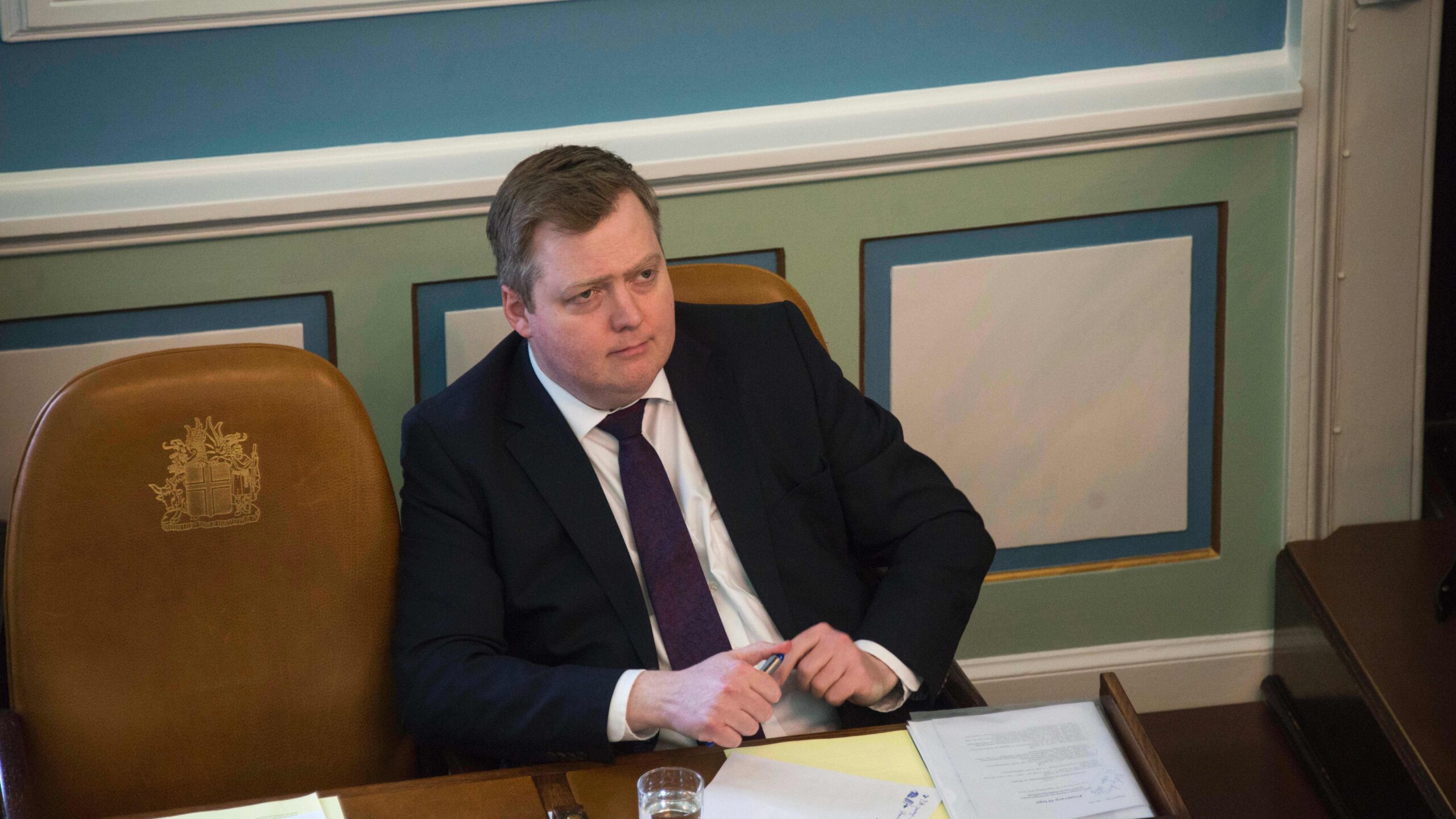Iceland’s Prime Minister Resigns Amid Panama Papers Scandal

Iceland’s Prime Minister Sigmundur David Gunnlaugsson attends a session of parliament in Reykjavik, Iceland, on Monday.
Icelandic Prime Minister Sigmundur David Gunnlaugsson resigned Tuesday, days after a massive data leak known as the Panama Papers linked him to secret offshore bank accounts.
With Gunnlaugsson on his way out, his deputy in Iceland’s Progressive Party, Sigurdur Ingi Johannsson, will lead the country, according to Godjon Helgason, a reporter at Icelandic National Broadcasting Service who spoke to NPR’s Newscast unit.
Johannsson, who is currently the fisheries and agriculture minister, “would take over as prime minister until elections [are held] next year — possibly sooner,” Helgason tells NPR. He adds that for now at least, there’s uncertainty over whether Iceland’s president has formally accepted Gunnlaugsson’s letter of resignation.
Gunnlaugsson intends to remain the head of Iceland’s Progressive Party, FastFT reports.
Earlier Tuesday, Gunnlaugsson had asked Icelandic President Olafur Ragnar Grimsson to call early elections and dissolve the current Parliament, the BBC reports, adding that Grimsson refused.
On Sunday, the German newspaper Süddeutsche Zeitung, along with other international news outlets that collaborated on the story, published a wave of reports about the murky underworld of shell companies and offshore bank accounts. The reporting was based on a massive trove of leaked emails and other documents from a Panamanian law firm.
As we reported yesterday, the data breach purports that Gunnlaugsson and his wife had a stake in a company seeking millions of dollars from failed Icelandic banks. The revelation sparked a public outcry in Iceland.
Thousands of people demanded the prime minister’s resignation, as Icelandic radio reporter Haukur Holm told NPR’s Renee Montagne on Morning Edition.
The Associated Press reports that Gunnlaugsson has said he and his wife paid all their taxes and did not break the law.
“He also said his financial holdings didn’t affect his negotiations with Iceland’s creditors during the country’s acute financial crisis. Those assertions did little to quell the controversy,” the wire service notes.
9(MDAxODM0MDY4MDEyMTY4NDA3MzI3YjkzMw004))





